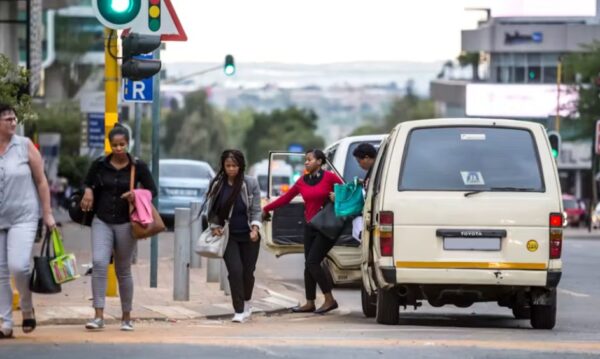
In a country where unemployment hovers around 30% and inequality remains one of the highest in the world, millions of South Africans find themselves doing jobs not out of passion, but pure necessity.
These aren’t high-paying corporate careers or glamorous professions — they are physically demanding, mentally exhausting, and often dangerous jobs done to survive.
Here are five of the most stressful jobs South Africans do to put food on the table:
1. Minibus taxi drivers
The minibus taxi industry is a lifeline for millions of commuters across South Africa — but it’s also one of the most dangerous professions. Taxi drivers face brutal working hours, reckless road conditions, and constant pressure to meet daily quotas. Add to that the ongoing threat of violence during taxi wars and minimal legal protection, and it becomes clear why this job is extremely stressful.
Why they do it: With limited education and high unemployment, driving a taxi is often the only way for many men to earn a living in urban and peri-urban areas.
2. Security guards
Security guards are everywhere — from shopping malls to construction sites — quietly protecting people and property. Yet their working conditions are anything but safe. Many work 12-hour shifts, six or seven days a week, often for minimum wage and little to no job security. They’re frequently the first line of defense in dangerous situations, but rarely get the recognition or pay they deserve.
Why they do it: The private security sector employs hundreds of thousands and is one of the few industries accessible to people without higher education.
3. Informal waste pickers
In nearly every major city, you’ll find people digging through bins or pulling overloaded trolleys full of recyclables. These are informal waste pickers — unsung environmental workers who clean the streets and reduce landfill pressure. But their work is grueling, dangerous, and rarely rewarded fairly. They’re exposed to disease, stigma, traffic hazards, and irregular income.
Why they do it: With no formal job prospects, many turn to waste picking to earn a few rands per day just to eat and support their families.
4. Domestic workers
For many South African women, especially in rural and township areas, domestic work is the only available form of employment. The job includes cleaning, cooking, child care, and more — often under exploitative conditions. Many domestic workers face verbal abuse, low pay, and no formal contracts. They’re the backbone of many middle-class households but often treated as invisible.
Why they do it: It’s one of the few jobs that doesn’t require formal education and offers a small but steady income.
5. Street vendors and hawkers
From fresh fruit sellers to those selling airtime and snacks on busy intersections, informal traders are a familiar sight in South Africa’s cities. Their work is physically demanding and uncertain. Vendors deal with harsh weather, police harassment, lack of infrastructure, and constant competition. Income varies by the day, and many live hand-to-mouth.
Why they do it: With no formal job opportunities, street vending offers independence and immediate cash flow, even if it’s inconsistent.
The bigger picture
These jobs may not come with office desks or benefits, but they keep South Africa running. They represent the resilience and determination of ordinary citizens surviving in an unforgiving economy. Behind each of these roles is a story of sacrifice, courage, and daily struggle.
In recognizing the stress of these survival jobs, we must also recognize the need for change — from better labor protections to more inclusive economic opportunities.
What are your thoughts?
Have you or someone you know worked in one of these jobs? Share your story or comment below.
